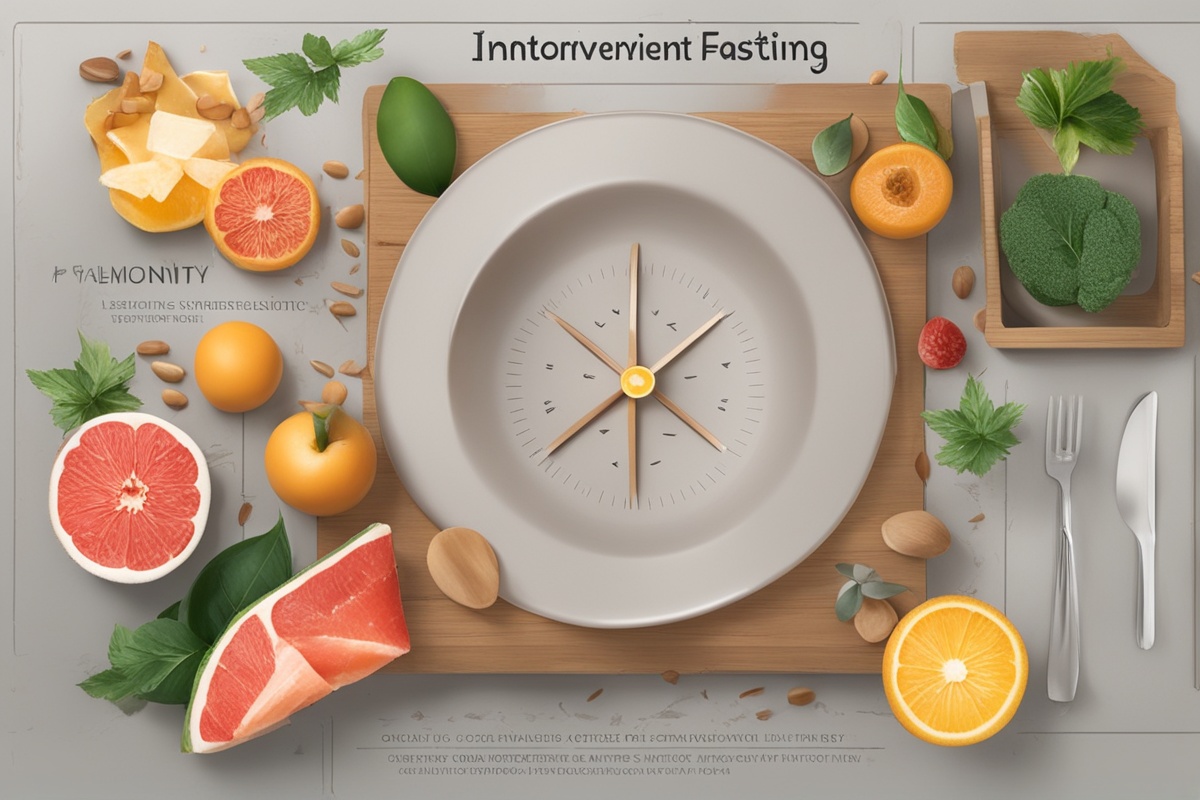Fasting, a practice rooted in various cultural and spiritual traditions, has gained significant attention in recent years for its potential health benefits. However, beyond physical wellness, many individuals are discovering that fasting can also play a pivotal role in enhancing mental clarity and productivity. Specifically, boosting work efficiency during a fast is an emerging topic of interest for professionals seeking to optimize their performance while adhering to fasting regimens. Whether you’re observing religious fasts like Ramadan, practicing intermittent fasting, or exploring other fasting methods, this guide will provide actionable insights to help you maintain focus and productivity during your fasting periods.
Understanding the Link Between Fasting and Productivity
Fasting, when done correctly, can lead to heightened mental clarity and improved focus, which are essential for productivity. The state of ketosis, often achieved during prolonged fasting, can enhance cognitive function by providing the brain with a steady source of energy from ketones rather than glucose. This metabolic shift can reduce brain fog and improve decision-making—key components of work efficiency. However, fasting can also pose challenges such as fatigue or irritability, especially if not managed properly. The key to boosting work efficiency during a fast lies in understanding your body’s responses and preparing accordingly.
Preparing Your Mind and Body for a Productive Fast
Preparation is crucial when it comes to maintaining productivity while fasting. Start by ensuring proper hydration and nutrition during non-fasting hours. For instance, if you’re practicing intermittent fasting, consume balanced meals rich in protein, healthy fats, and complex carbohydrates during your eating window to sustain energy levels. Additionally, prioritize sleep, as rest is vital for mental sharpness. Mentally, set realistic goals for your workday and communicate your fasting schedule with colleagues if necessary to manage expectations. By preparing in advance, you can mitigate potential dips in energy and stay on track with your tasks.
For more tips on preparing for fasting, check out our post on Fasting Preparation Tips for Beginners.
Structuring Your Workday to Maximize Efficiency
During a fast, energy levels can fluctuate, so structuring your workday strategically is essential for boosting work efficiency during a fast. Tackle high-priority or cognitively demanding tasks during your peak energy hours, which for many occur in the morning or right after breaking a fast. Use time-blocking techniques to allocate specific periods for focused work, breaks, and lighter tasks. Short breaks, even just 5–10 minutes of stretching or deep breathing, can help recharge your mind without breaking your fast. Additionally, avoid overloading your schedule—focus on quality over quantity to prevent burnout.
Learn more about time management during fasting in our article on Time Management Strategies for Fasting Individuals.
Leveraging Mental Clarity During Fasting
One of the most significant benefits of fasting is the potential for improved mental clarity, often referred to as the “fasting high.” This state can be a powerful tool for productivity if harnessed correctly. Use this time to engage in creative problem-solving, strategic planning, or deep work that requires intense focus. Avoid distractions by silencing notifications and creating a dedicated workspace. Mindfulness practices, such as meditation or journaling, can further enhance this clarity, helping you stay grounded and productive. By capitalizing on these moments of heightened focus, you can significantly boost your work efficiency during a fast.
Managing Energy Dips and Avoiding Burnout
While fasting can enhance productivity, it’s not uncommon to experience energy dips, especially during longer fasts or if you’re new to the practice. To combat this, listen to your body and adjust your workload as needed. If you feel sluggish, switch to low-energy tasks like responding to emails or organizing your workspace. Stay hydrated by sipping water or herbal teas (if permitted by your fasting rules), as dehydration can exacerbate fatigue. If you’re feeling overwhelmed, consider breaking your fast early with a light snack to restore energy—there’s no shame in prioritizing your well-being over strict adherence.
For additional strategies on managing energy, read our guide on Energy Management During Fasting.
Post-Fast Recovery for Sustained Productivity
Breaking a fast is just as important as the fasting period itself when it comes to maintaining work efficiency. Avoid overeating or consuming heavy, sugary meals, as these can cause energy crashes and undo the mental clarity gained during fasting. Instead, opt for nutrient-dense foods like lean proteins, vegetables, and whole grains to replenish your body gradually. Take time to reflect on your productivity during the fast and identify what worked or didn’t work for future improvement. A well-managed post-fast recovery ensures that the benefits of fasting translate into long-term gains in work efficiency.
Disclaimer: The information provided in this article is for general informational purposes only and should not be considered medical or professional advice. Fasting may not be suitable for everyone, especially individuals with underlying health conditions, pregnant or breastfeeding individuals, or those on specific medications. Always consult with a healthcare professional or nutritionist before starting any fasting regimen to ensure it is safe and appropriate for your individual needs.
References
- Harvard Health Publishing – Intermittent Fasting: Surprising Update
- National Center for Biotechnology Information – Effects of Intermittent Fasting on Health, Aging, and Disease
- Mayo Clinic – Fasting Diet: Can It Improve My Heart Health?
- WebMD – Diet Myth or Truth: Fasting Is Effective for Weight Loss
- Psychology Today – Fasting and the Brain
This content is for informational purposes only and not a substitute for professional advice.






